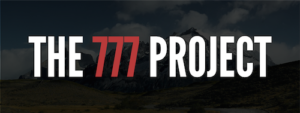There’s a book “Obvious Adams” about the power of obviousness (Taylor does a good review of it here).
The gist of the story is about a young man looking to start out in his career and he makes his career out of doing nothing but the obvious thing.
The book is a quick read, but details “Adams'” stunning success as he goes from entry-level employee to executive – just by asking the obvious question, and doing the obvious thing. Where others would be intimidated to ask or risk looking stupid, Adams simply does what is obvious.
It’s oversimplified fictional story, but it’s instructive.
When you’re starting our, when you’re mired in your own problems, it’s easy to overcomplicate things.
There’s a myriad of reasons – sometimes you even overcomplicate things to justify your job, intelligence, necessity, or workaholicsism.
There’s a small percentage of the time where the answer is as complicated as we would like, but most of the time, the answer is pretty simple.
- How do you get better at pull-ups? Do more pullups.
- How do you make more money? Sell more stuff.
- How do you get six pack abs? Dial in your diet.
- How do you get more flexible? Do more mobility work.
- How do you train for a marathon? Put the miles in.
When the questions get too detailed – the questions are often procrastination disguised as curiosity.
As a coach, you see this all the time. As an athlete, you can watch it happen in real time in someone’s head when you’re competing against them. Their brain slowly self destructing as they overcomplicate themselves to death.
The most hilarious example is when someone jumps in a cold shower or ice bath. It’s so primally physical that it’s harder to hide. When faced with the ice, the questions start flooding out.
“Is this healthy? Is this okay? I think it’s too cold. This isn’t a smart idea”
The simple answer is “get in, breathe.”
They don’t need more information, but they’re asking away anyways.
The person has already decided they want to find a way out, and are probing questions as a way to find the exit. When they find the answer that gives them a chance to quit, they will. You can book it.
The obvious solutions are often the right ones, staring you right in the face. Daring you to pick them.
They’re also usually the uncomfortable ones.
So the question usually isn’t what you should do, but will you have the will to do it?


I now think about all of my duties and work in steps instead of thinking about the entire story. I find this very helpful for stress because it makes me more focused on each step without really caring about the entire story until it is done. I would be interested to see how you feel about this kind of thinking.